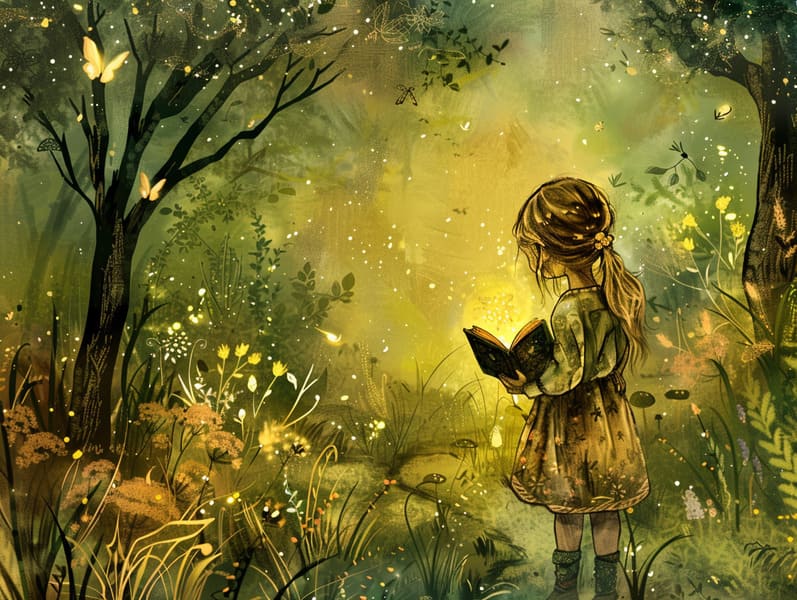Exploring the Wonder of Evening Fairy Tales: Creating Valued Experiences with Kids
Exploring the Wonder of Evening Fairy Tales: Creating Valued Experiences with Kids
Blog Article

Nighttime is a important time for moms and dads with their little ones. It’s a opportunity to ease into rest, get cozy, and experience the wonder of stories.
For lifetimes, stories for kids at bedtime have been a esteemed practice, offering more than just a way to slumber. They provide an opportunity for affection, discovery, and sparking inventiveness.
The Importance of Bedtime Stories
Evening stories for little ones are not just a way to end the day. They play a key role in a child’s development and in enhancing the caregiver-child relationship. Here’s why they are important:
1. Connection Time: Telling bedtime tales fosters a special period of closeness between caregivers and children. It’s a moment of attachment that helps children feel important and content.
2. Language Skills: Hearing tales helps children develop their language acquisition. They acquire new terms, understand grammar, and improve their hearing and analytical skills abilities.
3. Imaginative Skills: Bedtime tales carry them to imaginary worlds, nurturing creativity. They dream of characters, settings, and adventures, which fuels their imagination.
4. Emotional Understanding: Nighttime tales often involve characters facing obstacles and moods. These tales help kids handle and deal with their own moods, promoting emotional maturity.
5. Cognitive Development: Engaging with a story helps children develop attention span, recollection, and reasoning skills. They enhance to follow stories, remember details, and guess endings.
Making Storytime a Bedtime Ritual
Starting a bedtime custom that includes reading narratives is easy and fulfilling. Here’s how to create a treasured part of your end-of-day habit:
1. Choose a Comfortable Spot: Pick a comfortable place where you and your child can huddle together without disturbances. A comfortable bed or a peaceful reading nook works great.
2. Establish a Routine Time: Fix a specific time each night for bedtime stories. Predictability helps children be prepared and makes the habit easier to maintain.
3. Pick Stories for Their Age: Identify tales that fit your child’s developmental stage. Young kids might be drawn to visual books with clear stories, while older kids may appreciate detailed stories with more engaging plots.
4. Bring the Story to Life: Bring the tale come alive by doing different accents and voices, adding sound effects, and encouraging your child to take part. Ask stuff about the story to involve them.
5. Make a Calm Setting: Lower the lights, use hushed tones, and create a quiet environment to help your child relax.
Finding Excellent Bedtime Stories
There are numerous places where you can find great bedtime stories for children. Here are some ideas to check out:
1. Books for Kids: Visit your area library or bookstore to find a broad selection of bedtime stories for kids. Perusing the selections together can be a great activity that also permits children to get stories that they are drawn to.
2. Online Sources: There are many online platforms that offer free bedtime stories. Sites like kids' story platforms provide a variety of short stories for kids that you can download. These websites are great for finding new and unique stories without cost.
3. Audiobooks and Apps: For nights when you’re too drained to read, use audiobooks or storytelling apps. These can provide a soft-spoken reading to read your child a story, ensuring they still get their bedtime story fix. Apps often offer interactive parts that can capture their attention further.
4. Unique Stories: Make your own stories matching your child’s experiences. Personalized stories can be especially engaging and meaningful. You can bring your child in the storytelling process, making them a part of the adventure.
Benefits of Short Stories
Brief stories for children are very helpful for bedtime. They provide all the positives of longer stories but are more short, making them perfect for calming down before sleep. Here’s why short stories are a good choice:
1. Effortless to Follow: Concise narratives are uncomplicated and easy for kids to get, even after a long day. They can swiftly grasp the plot and enjoy the story without getting lost.
2. Quick Engagement: These stories rapidly engage children, catching their interest and curiosity. This makes them suitable for keeping bedtime rituals simple yet enjoyable.
3. Variety and Flexibility: Compact stories give for variety in your bedtime stories. You can pick a different story each night, keeping the ritual varied and exciting for your child.
4. Manages Time Well: For busy parents, short stories are a time-efficient way to confirm children still get their nightly dose of storytelling. They fit well into a busy schedule while still offering the full benefits of a bedtime story.
The Happiness of "Read Me a Story"
The simple phrase, “Tell me a bedtime story,” can open a world of magic for children. Reacting to this request not only fulfills a child’s request for attention and engagement but also fosters lasting moments. Here’s why it’s magical:
1. Attachment: find it here Reading to your child strengthens a deep emotional link. It’s a time for closeness, sharing, and bonding.
2. Custom: Establishing a bedtime story routine creates a valued tradition that children enjoy every night. It’s a practice that can be continued through generations.
3. Shared Learning: As you tell tales, you’ll see your child’s growth and progress. Their engagement, reactions, and understanding of the stories develop, offering insights into their developing minds.
4. Comfort Zone: Bedtime stories provide a safe space for children to deal with emotions, face fears, and find comfort in the trusted presence of a parent.
Wrapping Up
Kids’ bedtime stories are a vital tool for growing a child’s advancement and establishing unforgettable experiences of bonding.